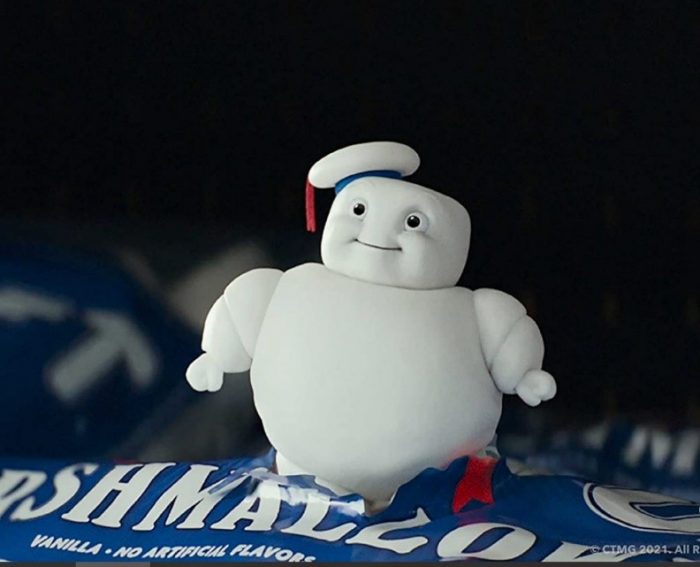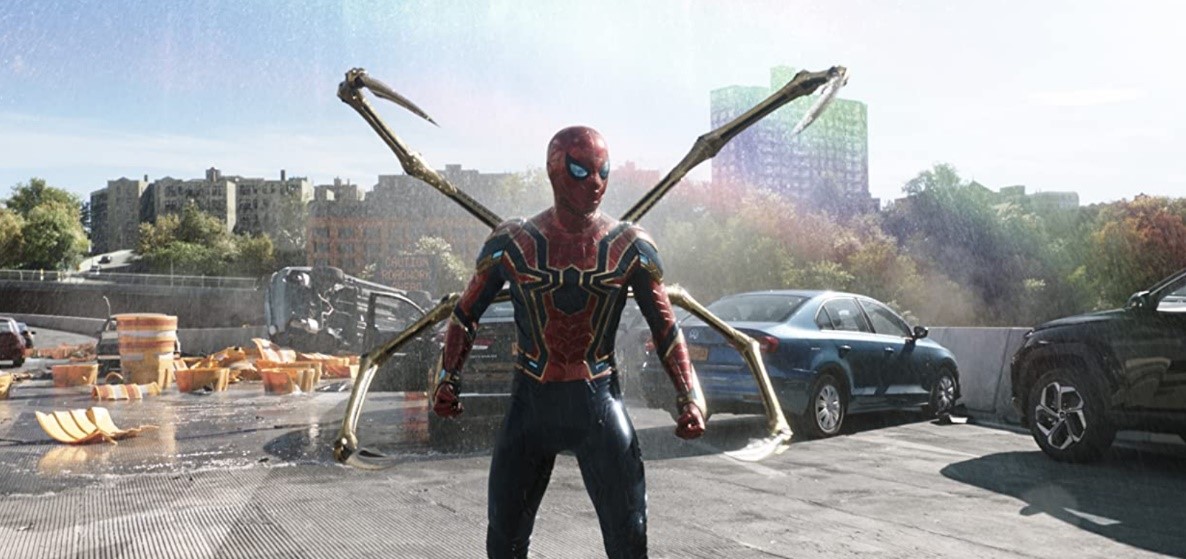Why is it that nearly every single blockbuster that comes out has to rely on nostalgia and fan service to have any weight to the film? Has Hollywood completely lost all of its originality? With recent new entries into the Ghostbusters, Matrix and Spider-Man franchises amongst many others all testifying to this, there’s an incredible excess of nostalgia in modern blockbusters, and Hollywood is just relying on previous films to keep us entertained.
I’m not saying that the final forty-five minutes of Spider-Man: No Way Home wasn’t absolutely incredible, and any geek’s dreams come true, but it just feels like so many films are hoping the nostalgia is enough to carry the film along and the new film doesn’t need to offer much of its own. Without delving into spoilers, Spider-Man: No Way Home does an excellent job of balancing this fan service whilst also moving its characters and the story along. No Way Home is one of the rare examples of a film that isn’t entirely dependent on the fan service and nostalgia it offers, it only adds to the excitement felt. Tom Holland’s Peter Parker/Spider-Man has a strong arc and his character develops greatly over the film’s two hour and twenty eight minute runtime. But then if you were to take out all of the cameos and returning characters, the film wouldn’t have been anywhere near as successful as it was. At the time of writing, it’s the eighth highest grossing film of all time. There’s no way this film could have matched this level of success without many of the surprises that many fans were hoping the film would have.
Take Ghostbusters: Afterlife as another example and it feels like there are so many elements of the film that are there purely the sake of nostalgia and no other real reason. The film introduces baby versions of the iconic Stay-Puft Marshmallow Man for one funny scene, but that’s about it, and they’re only in the film for two real reasons. Number one, so that you can sit in the cinema, do the Leonardo DiCaprio meme of pointing at the screen and think “oh I know them from the other movie”. Reason two is to sell more toys. The baby-marshmallow-men are clearly Sony’s answer to Baby Groot and Baby Yoda/Grogu. A cute little creature is always going to sell more toys. And that’s all they’re there for. They don’t serve any purpose to the film beyond making you think back to the Stay-Puft man from 1984. Take them out of the film and you’re no worse off. The whole of Ghostbusters: Afterlife just felt like one giant advert for the Ghostbusters franchise essentially saying: “You liked the first one, so just shut up and enjoy all these references to that film you liked”. But why should we watch the new one and not just go and watch the original film again? There has to be something worthwhile in the new film!

Alternatively, you can take a completely different road to walk when re-igniting your franchise like The Matrix Resurrections did. Resurrections manages to be a sequel, remake, and reboot all at the same time, whilst simultaneously taking the piss out of all three. That film even acknowledges that it is just a big cash grab as it even includes the line “our beloved parent company Warner Brothers have decided to make a sequel to the trilogy”. But fans of the original Matrix trilogy will of course lap it up. Once again quoting from the film itself, “nothing comforts anxiety than a little nostalgia”, and that’s what Hollywood will continue to do. The Matrix Resurrections makes fun of sequels that tread the original and then precedes to do just that, with it going back and re-doing the exact same plot beats as the original film. And now it’s just all getting too much. It’s more than a little nostalgia, it’s a lot when everything is throwing nostalgia right in your face both on the big screen and the small screen.
Disney are very often criticised for being the king of unnecessary cash grabs relying on nostalgia with their countless live action remakes and re-imaginings – it just never ends with them. Even their latest Star Wars series The Book of Boba Fett streaming on Disney+ is cashing in on nostalgia. Boba Fett has always been one of the most beloved Star Wars characters, even from his first appearance in the absolutely trash holiday special from 1978, back before we saw him in The Empire Strikes Back in 1980 and so of course Disney bring him back for his own TV show. And of course, they have to return to Tatooine, the one planet where every single thing in the Star Wars universe seems to ever happen. Despite it being the planet Luke Skywalker was sent to as a baby in order to lie low and live a peaceful life, everything that ever happens in Star Wars seems to inevitably end up taking place on Tatooine! And as a result we end up getting brief glimpses of recognisable characters and places from previous Star Wars films because Disney are too scared of ever doing something new and something fresh.
There is only one franchise out there that’s actually willing to hold up a mirror to Hollywood’s incessant need for sequels and reboots and thankfully that franchise returned this January. I am of course talking about the Scream franchise. The incredibly self-aware and meta franchise had its fifth instalment released in January and it’s an absolutely brilliant film. It knows exactly the state that Hollywood is in with its reliance on sequels, reboots and ‘requels’, a mix of the two and it fantastically takes the piss out of these sorts of films whilst actually saying something about film franchises and the toxicity of fandom.
It’s a franchise that has always poked fun at genres expectations, and they’ve always had an air of fun self-awareness to them, but the latest instalment fully talks through Hollywood’s reliance on sequels and reboots in one of its most sharply written scenes, jeering at Hollywood’s crushing need to link everything back to films from the past. Again, without going into spoiler territory, the new Scream (notably not called ‘Scream 5’) asks us to take a long hard look at the so-called ‘fans’ of franchises like Star Wars that think Rian Johnson ruined the film series and Scream perfectly puts this in perspective for us. Whilst Scream is itself a sequel that’s coming out more than ten years after the previous instalment, it feels relevant and necessary. Thankfully it’s one of very few films that’s not shoving nostalgia down our throat purely for the sake of it.
You only have to look at a list of films coming out in 2022 to see that this trend of relying on nostalgia and fanservice to sell a film isn’t going to die out anytime soon. Later this year we’ve got a new Batman film, the cast of the original Jurassic Park film returning for the latest sequel, a Top Gun sequel arriving more than 35 years after the original and Lightyear, a film about the ‘real-life’ astronaut that inspired the toy Buzz Lightyear in the world of Toy Story.
It would appear that originality is dead. Whilst there might also be plenty of exciting and totally original films being released this year, the films that will invariably get talked about the most will, of course, be the big blockbusters, and every single one of them feels the need to rely on the audience’s nostalgia for the franchise in order to get a reaction. Does the 374th film in the Marvel Cinematic Universe really need that cameo? Or can it get by without and actually establish the new characters and take them somewhere new in the future without constantly looking back and relying on the past?
I suppose we’ll have to wait for that sequel and found out.
